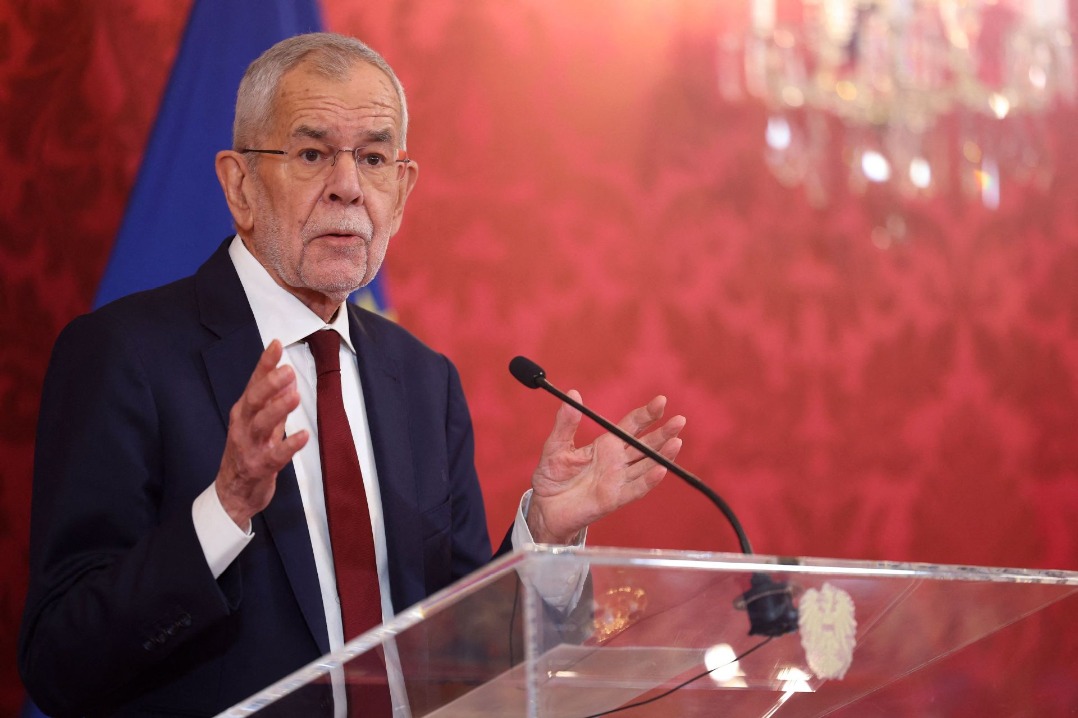Tour guide brings the past to life in London


Meeting market demand
"I did not mean to build something big, but the market drives me to do so," An says, looking back at her career path.
The year 2008, when Beijing fulfilled its Olympic dream, and China and the UK deepened bilateral ties, saw An kick of her professional life as a tourist guide.
A soaring number of Chinese tourist groups coming to the UK highlighted a demand for tour guides, which motivated An to grow more talent.
In 2009, An established her tourism agency for guided tours. She trained beginners to do airport pickups, design routes, communicate, and introduce stories of the attractions, and she found another market as the independent travel sector began to grow.
People may still need a guide but they are more willing to travel in London by themselves, instead of joining a tour group, An observes.
"They are more than welcome to tour on their own, but once they need a professional explainer, just pay for the few hours of our service."
An and Chang soon set up another team in 2017 to develop the "fragmented" products that gained much popularity later, and in two years, the team has expanded to 40 workers, including trainees, a number that fell to around 10 during the pandemic.
An has emphasized the importance of the market, but she has also valued the team's reputation earned by delivering high-quality tour services.
"We catch the chance when there is a need from the market. If your service is competitive enough, customers will keep coming back, and your team will, of course, grow at speed," she says.
"At present, most of our customers come to us due to word-of-mouth. Similarly, the content we put online has been recognized by our followers. I see the numbers climbing."
An says she is still "hungry" for knowledge. "There is not a single day that we're not learning. The more we share, the more we would like to enrich our presentations."
The power of museums
Absorbing new things like a sponge is a professional necessity, she says.
"We meet diverse tourists who ask different questions. Although I walk around the same old places every day, a single visit to a museum might be a once-in-a-lifetime experience for our tourists. I might bring them the most precious memories ever, so I must take my work seriously."
A museum, for An, is not only a place where she makes her living but a hub where the paths of human civilizations interweave across ages and regions.
"I marvel at the design in the Victoria and Albert Museum as it mingles the perception of aesthetics, art, and life into one. I admire the miracle of lives, and the future of our planet when wandering in the Natural History Museum. And for the British Museum, it tells the history of mankind."
A professional tour guide, she adds, is one who can deliver those profound messages.
"We stand in the museums, surrounded by the relics, observe their shapes and try to read the messages: Are they made for daily use? Are they telling ancient people's comprehension of nature? Relics can speak. But without an informed guide, people may only see silent objects."
An also sees her job as a way to develop intercultural communication.
"I'm hoping that more people can enjoy diverse human cultures through my guiding. Different cultures don't exist in isolation but meet and blend together. We are proud of the brilliant Chinese civilization, and we also need to learn from each other," she adds.
"Our team will continue to share knowledge and provoke thinking. That's why we stand here today."































